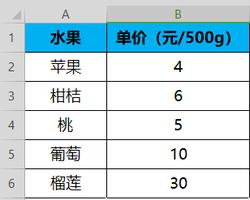计算多个数的几何平均值的有效方法
我需要计算大量数字的几何平均值,其值不受先验限制。天真的方法是
double geometric_mean(std::vector<double> const&data) // failure{
auto product = 1.0;
for(auto x:data) product *= x;
return std::pow(product,1.0/data.size());
}
但是,这很可能由于累积的下溢或溢出而失败product(注意:long double并不能真正避免此问题)。因此,下一个选择是总结对数:
double geometric_mean(std::vector<double> const&data){
auto sumlog = 0.0;
for(auto x:data) sum_log += std::log(x);
return std::exp(sum_log/data.size());
}
这可行,但是需要std::log()每个元素,这可能很慢。
例如,通过分别跟踪累加的指数(等于)和尾数(等于)product?
回答:
“拆分指数和尾数”解决方案:
double geometric_mean(std::vector<double> const & data){
double m = 1.0;
long long ex = 0;
double invN = 1.0 / data.size();
for (double x : data)
{
int i;
double f1 = std::frexp(x,&i);
m*=f1;
ex+=i;
}
return std::pow( std::numeric_limits<double>::radix,ex * invN) * std::pow(m,invN);
}
如果您担心ex可能会溢出,可以将其定义为double而不是a long
long,并invN在每一步乘以,但是使用这种方法可能会损失很多精度。
对于大型输入,我们可以将计算分为几个存储区:
double geometric_mean(std::vector<double> const & data){
long long ex = 0;
auto do_bucket = [&data,&ex](int first,int last) -> double
{
double ans = 1.0;
for ( ;first != last;++first)
{
int i;
ans *= std::frexp(data[first],&i);
ex+=i;
}
return ans;
};
const int bucket_size = -std::log2( std::numeric_limits<double>::min() );
std::size_t buckets = data.size() / bucket_size;
double invN = 1.0 / data.size();
double m = 1.0;
for (std::size_t i = 0;i < buckets;++i)
m *= std::pow( do_bucket(i * bucket_size,(i+1) * bucket_size),invN );
m*= std::pow( do_bucket( buckets * bucket_size, data.size() ),invN );
return std::pow( std::numeric_limits<double>::radix,ex * invN ) * m;
}
以上是 计算多个数的几何平均值的有效方法 的全部内容, 来源链接: utcz.com/qa/423240.html





